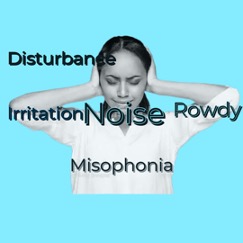It is pretty annoying to find yourself plagued with people that chew their gum so loud that you begin to wonder. Even ruminant animals with four stomach chambers that chew their cuds often aren’t as loud.
This habit from the people around us is more like an epidemic strike that we most times, unfortunately, have to deal with.
This gets you asking the question: “how do you tell someone they are chewing their gum so loud without offending them or coming off like a perfectionist?”
Well, even people with the nastiest of characters become somewhat considerate when approached with the right words and tone.
This means that to do this, you have to exude a good dose of tact, emotional intelligence, and subtleness.
Except the person is just irredeemably grossly terrible and unrepentant. But there are practical workable ways that have proven to suffice.
This article lists and tells you how to apply them.
Here are 7 ways to tell someone they are chewing their gum too loud
- Tell them politely
- Feed them a dose of it
- Tell them your ears are sensitive
- Tell them to chew with their mouths closed
- Record it and play it later
- Ask them to see a clinical psychologist
- Ask them to have you offer them therapy sessions
1. Tell them politely

Most times, it is often not what we say that counts, it is how we say the things we say.
The best way to tell a person they are chewing their gum too loud is to calmly point out the reason why this could make them come off as not well schooled, how it tells bad of their person and how, if not stopped or controlled, could cause them problems in other places.
And while conveying this message, you’d tone down your voice, otherwise, they’d get taken by anger and misinterpret your counsel for insult. And in the end, your efforts would end in futility. You do not want that.
The importance of the need for correction has to match the means of corrections, otherwise, it wouldn’t play out well.
2. Feed them a dose of it
One way to make people understand how gross their way of chewing gum is, is to do it exactly as they do.
People do not quite get how it feels to listen to loudly chewed gums when they do, until they get to hear another person do the same.
The psychology behind this is that one’s mind is more focused on the action that one is engaged with that it seldom recognizes the effect of that action as long as the person is not on the receiving end.
This means putting them on the receiving end is the best explanation of what truly is, this way they can hear and have a first-hand experience. Then follow up with an explanation telling them the reason for your action.
3. Tell them your ears are sensitive

When a person chews gum loudly, you can tell them your ears are more sensitive than that of every normal person.
Let them know the sounds that emanate from there terribly cause you discomfort. When a person chews their gum too loud, you can tell them you have misophonia; this is a strong negative reaction to a repetitive sound. And chewing gum loudly is a trigger.
And when this happens, it usually makes the person suffering from this want to literally seal up their eardrums with adhesive.
And while this might sound ridiculous, this is exactly how they feel. A British research done recently and published in Current Biology showed that people with this condition have a frontal lobe abnormality.
And this gives them intense negative emotional reactions as triggered by rowdy sounds. However, make sure to pass this message civilly and not come off like a schmuck.
4. Tell them to chew with their mouths closed
When a person chews gum too loudly, ask them to chew with their mouths closed. This is the only way the sound can get trapped therein without any decibel coming out disturbingly.
Generally, the best way to chew regardless of gum or food type is to have both lips hugging themselves with no airspace between them.
Then when the need to open the mouth arises, the tongue should be clasped to the lower palate. This is one-way chewing can be done noiselessly.
5. Record it and play it later
Nobody wants to listen to the rowdy noise that comes from unruly gum chewing.
So one way to communicate the senselessness of chewing gum loudly to a person who does is to record it on your phone, play it as a time they aren’t chewing and watch them get irritated to ask you what annoying sound that is.
Thereafter, you ask them how they feel listening to it. Watch them pour out their disgust in words, facial expressions, and all forms of paralanguage.
You do not only tell them where the sound came from, but you also make them understand this is exactly how you feel.
6. Ask them to see a clinical psychologist

Chewing gum loudly starts off as a thing, it becomes a hobby and morphs into a habit that defines behavior.
Advising a person that chews gum loudly to see a clinical psychologist would help because here, this person would be given behavioral therapy.
This type of therapy looks and checks for unhealthy behavior that is potentially self-destructive, and disturbing to others around.
This is a type of therapy that is based on the notion that since all habits are learned, they can also be unlearned and changed.
This therapy can help to tamper with this maladaptive chewing behavior that has stuck with a person over time.
7. Ask them to have you offer them therapy sessions
Since people are often shy and aren’t very free with people they are just getting to know, they might not be very open, and as such, they may not get the help they need.
This means you can step in to help a person that chews his gum loudly if you suspect that he’s not cool and won’t be open to seeing a therapist. The downside to this option is that you have to be knowledgeable in this field to offer the said help.
However, taking a few days to intensively study and know your onions on the specific areas on how to offer this help can yield better results too.
Besides, the fact that you have a first-hand experience of this person’s chewing habit, and because you have a personal relationship with him (in most cases) puts you in a better position in better ways you can help out.
If you have asked this question:
“When You Can Talk to Someone Who Chews Gum Loudly?”
Then, this is for you. You should confront people with this trait only when it is habitual. If this has become routine behavior, then you need to let them know.
However, another question that hits is:
How Do I Correct A Person Who Chews Gum Loudly Without Offending Them?
The right way to correct a loud gum chewer without offending them is to have a tactful delivery. Your delivery will do it for you. Truth is, most times, these people aren’t aware of the sound they make.
So, an aggressive confrontation will only result in getting them miffed. Always try to make the confrontation light and a tad playful.
Otherwise, at best, it’s either you end up embarrassing them or creating bad blood between you and them at worst.
The rule still remains that you keep it pretty light. Lace it up with humor if you have to. It all depends on the level of cordiality you share with the person.
You can even put faux blame on yourself before making a nice appeal and go like: “ This isn’t exactly about you, it’s me.
Little noises that mean nothing distract me a lot and I would really appreciate it if you’d be kind enough to tone down the sound when you chew. I’m so sorry I have to put you through this stress.”
Conclusion
It’s pretty tricky when it comes to understanding human psychology, relating with people, and addressing issues that involve some sensitive life areas. It can be difficult to find the appropriate way to convey your message without being off-putting.
People have different realities that define their distinct characters, and it takes understanding this to know that not everyone can behave as you would want them to.
We all know how uncomfortable slurping can be, however, this is the “normal” for some people. And until you subtly bring this to light and enlighten them on the need to put their analytical mind to play.
The analytical mind defines and identifies problems, it picks out key data and information. Thereafter, it derives workable solutions for the identified problems. This is how issues are tackled.
